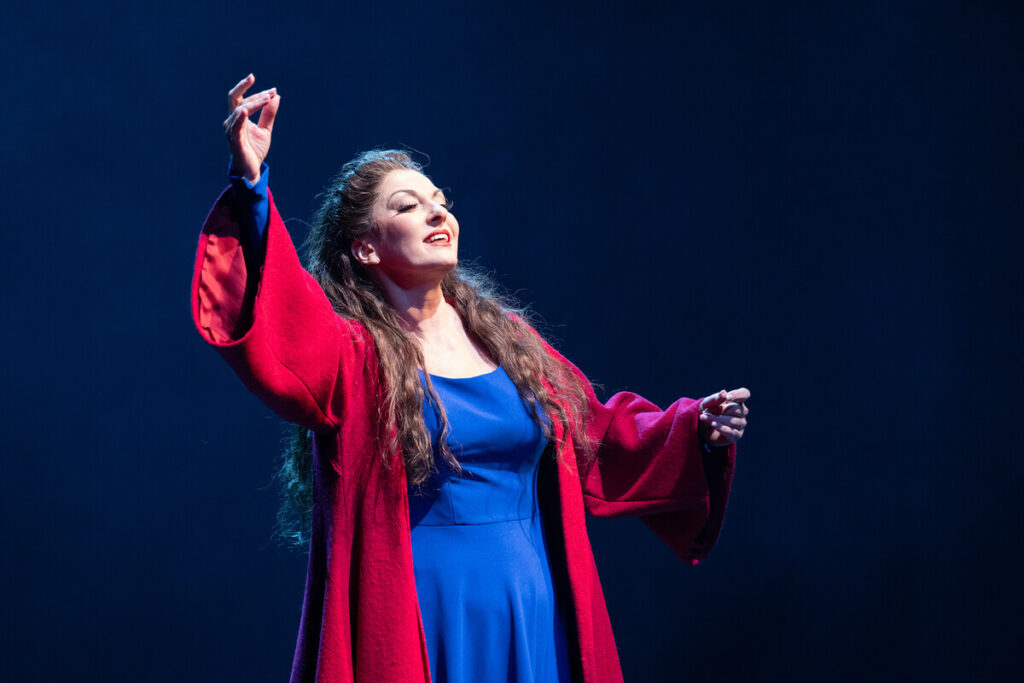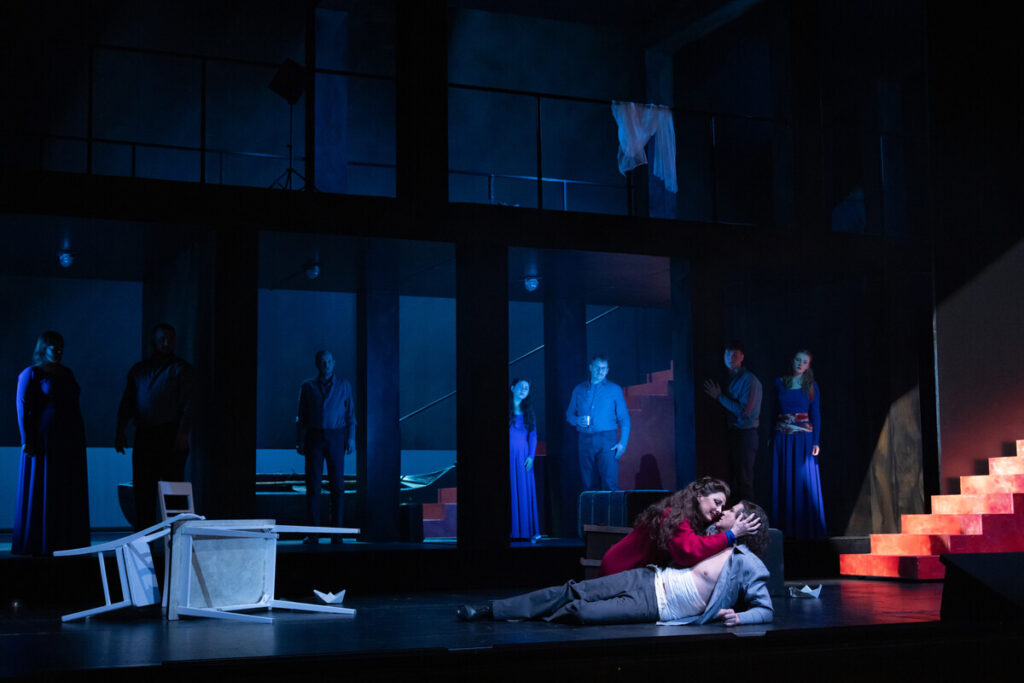30th stage anniversary: Iordanka Derilova sings and plays an “Isolde” of youthful charm with great and healthy expressiveness at the Anhaltisches Theater Dessau.

How many can do that? After an acclaimed debut in the heavy German repertoire in her mid-twenties, fame and prestige typically beckon. Then perhaps a call to the really big houses. Who can say “no” when the market is overflowing with young talent?
The Bulgarian Kammersängerin, a member of the Anhalt Theatre ensemble since 2003, has sung the major roles in her repertoire up and down. This includes “Isolde”, in which she made her debut in 2006 and was immediately nominated by “Opernwelt” as the best singer of the year. This was followed by “Brünnhilde” in the “Ring”, which was developed backwards over the years in the “Bayreuth of the North” and met with some national acclaim as the “Bauhaus Ring”. In summer 2024, Derilova will perform this role at the Sofia Opera in her home country. Quite rightly so – because even after 30 years, Iordanka Derilova has managed to more than convince with her dramatic power and, above all, her vocal performance.
Now, for the second time, the main role in Richard Wagner’s musical magnum opus: Michael Schachermaier is responsible for a direction that leaves plenty of room for interpretation and characterisation in a few, reduced and classical stage elements (stage Paul Lerchbaumer). The dominant scaffolding, set against a black background and occasionally shown in sections, is reminiscent of Katharina Wagner’s “Tristan und Isolde” at the Bayreuth Festival, but is varied somewhat by a red staircase leading up to it. King Marke will later appear in the same red, and the colour is also imposed on Isolde herself as the prey.
When, during Tristan’s outbursts of suffering, love and madness in the third act, the past scenes between the lovers, such as the taking of the potion, are re-enacted in new constellations of other couples, this is an interesting reminiscence intended to show the universality of love in an impossible existence: Look, this is how it was, will be and will be. A nice idea.

Iordanka Derilova created and sang Isolde with youthful intensity and great expression, which could only have been improved in terms of text comprehensibility. In her interaction with her singing partners, she has a wonderful ability to reduce, harmonise and adjust. Tilmann Unger‘s Tristan has a beautiful, differentiated, lyrical and refined potential, which, however, was hardly able to fill the large auditorium of the Anhaltisches Theater in the great outbursts in front of the largest orchestral orchestra. Nevertheless, in “Sink hernieder, Nacht der Liebe” he succeeded in creating an absolutely beautifully shaped line with pulling power, into which Derilova’s well-harmonising soprano was able to fit.
Anne Schuldt as Brangäne brought a beautifully flowing mezzo to the role, precisely and clearly intoning the warning cries from the centre of the stage from the scaffolding into the hall. Michael Tews as King Marke remained somewhat pale as a resigned and deceived man, while Kay Stiefermann’s Kurwenal was expressive and flexible, but was able to intonate accurately. In the other roles, Barış Yavuz as Melot, David Ameln as the Shepherd and Young Sailor and Pawel Tomczak as the Helmsman delivered a well-balanced ensemble performance.
The opera choir of the Anhaltisches Theater (conducted by Sebastian Kennerknecht) sang with unity and harmony on stage. The Anhaltische Philharmonie under the direction of GMD Markus L. Frank demonstrated a stringent and direct approach to the score: beautifully fanned-out crescendos, which would only sometimes have required a little more courage to adopt exciting, slower tempi, continued with precise transitions into the tutti outbursts and orchestral eruptions. The result was a fresh, gripping and lively interpretation that helped the production to be a success. Much applause.